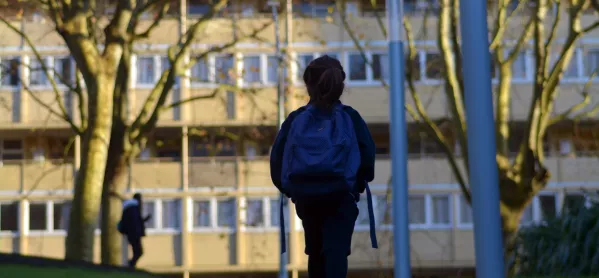Schools may be putting pupils at risk by not reporting criminal incidents such as “sexting” and minor assaults to the police, according to a new report.
The research, commissioned by the Department for Education, analyses reviews into the deaths or serious injuries of children in circumstances linked to abuse or neglect (known as serious case reviews or SCRs).
It finds that schools have tried to manage incidents in-house to avoid criminalising young people but, in doing so, can leave professionals “without the full picture and less able to safeguard the adolescent”.
Expert view: How schools should respond to sexting and sexual images
Exclusive: Ofsted ‘failed to act’ on sex assault fears
Read: More police ‘needed in schools to stop knife crime’
The report states: “Being a victim and a perpetrator can be very closely related and young people require both support and safeguarding.”
It highlights the case of a 15-year-old black British boy killed by stabbing (referred to as Child U) who had spent the majority of his childhood abroad without his parents and returned to the UK “significantly behind in learning” before becoming disruptive in school, being excluded and becoming involved in drugs, weapons and gangs.
The report states: “It was clear that there was a lot of key information known but not shared. For example, incidents such as assaults at school which were not shared with the police and going missing incidents were not always shared with children’s social care or his school.”
Reasons why information may not be shared include systems failures in the use of electronic databases and principles of confidentiality, according to the report.
It states: “Some reviews indicated that schools may try to manage incidents in-house, like a minor assault or a sexting incident, to avoid criminalising young people. However, that leaves other professionals without the full picture and less able to safeguard the adolescent.
“For Child U, that meant that when he attended emergency departments with injuries, few questions were asked, as they were not aware of any other concerns.”
The report, entitled “Complexity and challenge: a triennial analysis of SCRs 2014-2017,” was written by academics from the universities of East Anglia and Warwick.
It also notes that “the seriousness of technology-assisted abuse such as ‘sexting’ was not always recognised by practitioners”.
For example, in the SCR of a looked-after white British girl who was murdered at the age of 16, no referral had been made by the Hospital Education Service to child sexual exploitation specialist support services after she had shared concerns with staff about a young male peer threatening to publish explicit photographs of her on the internet.




